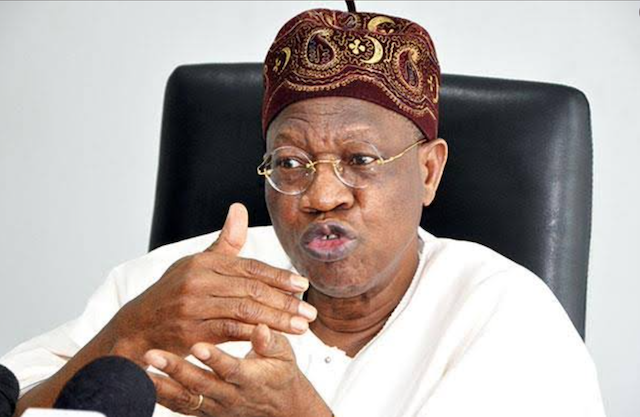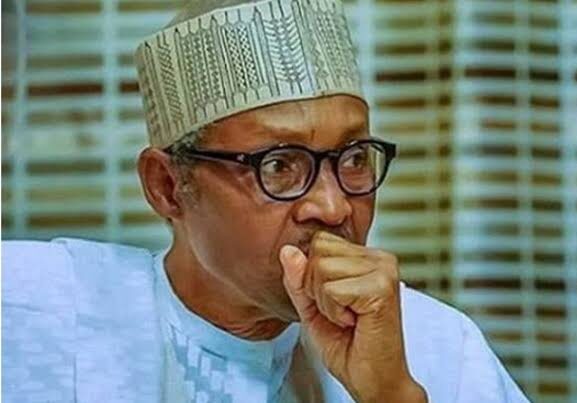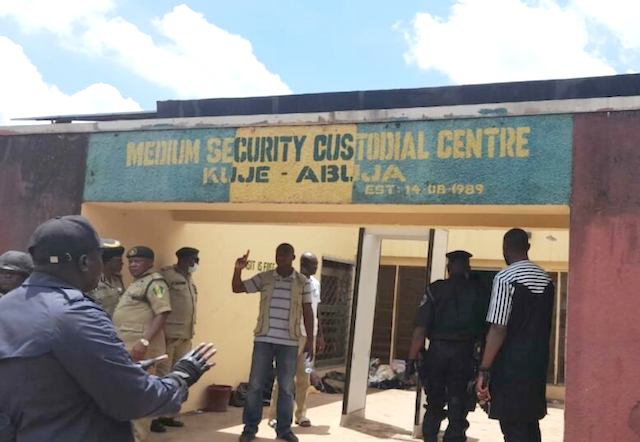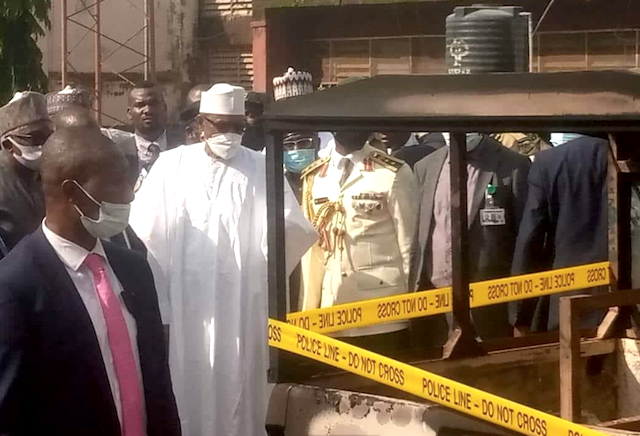The period between now and May 2023 is Nigeria’s season of expectations and grave anxiety. Nigerians are expectant that the forthcoming general election will enable them as an electorate to renew our national leadership through the ritual of voting. On the other hand, the perilous state of the state has raised the level of anxiety among the people about what might chance in both our private lives and our collective plight as a nation. The optimistic electoral expectation is a legitimate democratic entitlement. Anxiety about our individual lives is also natural. Concern about the plight of the Nigerian state is equally natural especially among the elite. But happily, the essence of the nation remains intact in the hearts and minds of the generality of ordinary people.
Going by the agenda that the Buhari administration set for itself in 2015, we are eleven months away from paradise. We are eleven months away from comprehensive security, a corruption free society, an economy that guarantees prosperity for most and food for the majority.
Happily, the just completed party nominations has shown us who among two and half ambitious adult males is most likely to move into Aso Villa on 29th May, 2023. Spouses of two of them are already said to be literally measuring the drapes in the Presidential Villa and ordering new apparel for the great day of inauguration or coronation. What remains uncertain is what symbol better guarantees a gate pass into the villa. But whether you are armed with a broom in this age of vacuum cleaners or an umbrella when you are mostly cocooned from rainy days, high expectation is the legitimate entitlement of every aspirant to the highest political job in the land. In this uncertain ritual of democratic pool betting incurable optimism is the best armor against the unexpected. Trust Nigerian politicians. They are up to date in the drama of expectation of imminent power.
The buzz is that one of the virtual presidents is so anxious to assume power that he cannot wait any longer. In the privacy of his home, he is said to be practicing the footsteps of a big man of great power. He takes the dignified measured steps in the loneliness of his sitting room. He is also practicing the elocution of presidential absolutism, a manner of speaking that conveys the finality of the power of life and death. The man is rehearsing to an audience of trusted aides or sometimes alone. A man talking to himself in the dead of night and in such grandiloquence should ordinarily attract the attention of concerned relatives or even mental health doctors. But this is Nigeria. Everything a man of great wealth and imminent maximum power does is a display of either genius or style. It was the Kenyan writer Ngugi Wa Thiongo who once said that “the African is a born actor”!
Another of the presidents apparent has even been recently spotted taxying his aircraft to the presidential wing of one of our major airports in anticipation of imminent presidential power. Thereafter, he moved in an endless motorcade, complete with authorized hooligans to his private home. A foretaste of the coming days!
Yet another one of the virtual presidents has taken up residence in some cozy foreign land and is prepping to direct his campaign from anywhere else in the world. It is just so we can get used to the imminent junkets in search of ‘investors’ when he is finally sworn into office. The man is used to wining and dining with princes and monarchs under golden chandeliers. Do not expect him to settle for anything less grand just because he conceded to become your president.
In this unfolding tale of the unexpected, one of the expectant men may probably walk up the dais at Eagle Square on inauguration day from the unexpected anonymity of people’s power and popular acclaim. What unites politicians gathered around all of these three most likely factions is the expectation of assuming ultimate power over the rest of us next May.
Let us not forget the expectations of the incumbent administration and its support cast of tepid and uninspiring prefects. As an entitlement, the incumbent administration now in a flat lame duck state anxiously expects its term to end quickly so that the cup of responsibility can pass them by. This collection of office occupants is just going through the motions, having run out of steam, ideas and commitment to anything beyond the self and its endless interests. The general public wish and prayer for this collection is simple: “Finish and go!”. Just manage to keep the ship of state afloat for the remaining 11 odd months.
For the rest of us ordinary Nigerian citizens and the electorate, the season of democratic transition entitles us to grand expectations about our conditions. We are literally fired up even if pushed to the wall. Against the ugly backdrop of our tormented present, there is a universal wish that hard times and bloody nightmares will yield place to the return of laughter and a little bit of sweetness. We expect the outcome of the elections to bring forth new leaders, a few good men and women, with the courage to chase away all terrorists, bandits, kidnappers and highway robbers.
As ordinary folk, our expectations are not so lofty. We expect that the elections will restore the missing second and third meals from our shriveled daily menu. We expect that our wives and daughters who leave home for work or for the market will return without being kidnapped and raped by strange rough men with guns. There is widespread expectation that those who go to our public hospitals in search of cure and care will no longer return in caskets. Above all, we expect 2023 to end the epidemic of endless strikes and jobless queues so that the bitterness in the hearts of many can turn into a burning desire for the pursuit of happiness. Maybe at least, Nigerians can find work in return for pay cheques that can support living instead of mere existence.
Sadly, there is little in our present condition that supports this barrage of positive expectations. Our general living conditions continue to worsen by the day. The question of the moment is now whether there will still be life before the 2023 election and its outcome. It is many worrying questions in one. Will most ordinary people be able to survive up to 2023? Will the sick be able to afford basic medications? How many parents will still be able to send their kids to school? How many homes will remain lit as electricity tariffs head for the sky? How many will be able to afford cooking gas or kerosene or even fire wood if they find the food to cook.?
Even more frightening, the threats to the survival of the Nigerian state are now clear and present. The litany of our woes no longer merits a fresh rehash. Bad things have become a new name for our new normal. It is not easy to overlook the specific bread and butter issues like the price of diesel, the price of cooking gas, the perennial scarcity of gasoline, the rising food and other inflation that have made food and other essential necessities beyond the reach of most honest ordinary people.
The high minded among us could insist that we concentrate on the big issues that threaten the very survival of the Nigerian state and forget mundane existential setbacks. In other words, let us worry more about the steady slide into avoidable anarchy and compulsive dysfunction. Let us lose sleep instead over the perennial absence of order and strategic purpose. The argument is that these sate survival issues will not pause simply because Nigerians are expectant about elections and their outcome. But these larger and lofty issues of state can never replace the material conditions of the lives of ordinary people.
Nor does the lame duck status of the current incumbency exonerate the present officialdom from responsibility for the welfare of the citizens and as well as the continuation of the state. The easy argument is always that we need a viable nation state in order to pursue the rights and welfare issues of individual citizens. The corollary can be even more compelling. You need living citizens to indulge in the luxury of the nation state with its cascade of ceremonies and bureaucratic pomposity. For the ordinary Nigerian, the nation is good when most necessities of life remain affordable so that they can live their lives here on earth. At those times, when you ask ordinary people the iconic question, “How Country?”, you get a resounding existential affirmation that ‘life is good’.
In focusing attention on the survival of the state, the assumption is that the state itself has the inbuilt resilience and capacity to roll back the imminent anarchy and can protect us all from the possibility of a meltdown. We also assume that the wisdom of state is strong as to avoid fresh blunders. That optimism may in fact be groundless after all as new gambles are in the offing.
For instance, a much delayed national census is scheduled to take place before the elections. In a country where previous census figures have sparked off political firestorms, no one knows what the 2022 census will breed in the countdown to an election that is already surrounded by uncertainty in an atmosphere of divisive politics.
Meanwhile, President Buhari who seems quite comfortable in the new coziness of his lame duck status has revved up his globe trotting instincts. The engines of his presidential jet seem to be permanently in start position and in wait for the next junket. He has in recent weeks clocked up more air miles to all manner of inconsequential destinations. In the midst of his party’s troubled succession nomination primaries, he jetted to Spain a country with sparse business and trade links with Nigeria, to receive national honours and decorations. He has also just returned from another series of meetings in Portugal, an erstwhile colonial nation that is now in a miserable state with a sorry economy.
Predictably, Nigeria’s ceaseless cascade of now systemic insecurity has continued to spiral. In the latest iterations, roving bandits and gunmen have ambushed platoons of soldiers and policemen in Shiroro, killing as many as 30 by official admission. A horde of ISWAP terrorists stormed the Kuje medium security prison in Abuja and freed over 800 prisoners including dangerous Boko Haram prisoners. Gunmen have attacked the president’s advance convoy in his Katsina home state.
Nor are private lives immune from the gale of insecurity. People on their way to market or from work are no longer sure that the public bus on which they are riding is not a ‘one chance’ ride to a kidnapper’s den. This risk is now rampant even in the relative security of cities like Abuja, Lagos, Port Harcourt and Kaduna. Foreign missions in our midst are paying heed. In its latest travel advisory to its citizens in Nigeria, the Canadian government has advised against travel to 32 of our 36 states because of the ever present risk of kidnapping, armed robbery, ritual murder or the spontaneous eruption of mob violence.
Meanwhile, those who know anything about economics insist that Nigeria is nearly bankrupt. With over 98% percent of current revenue going into debt service, there is clear danger that Nigeria could soon begin to default on its foreign loans. An avoidable petroleum subsidy regime has been allowed to persist by a collusion of government bureaucrats and oil and gas oligarchs. Subsidy bills currently gulp somewhere in the neighborhood of N600 billion a month.
Fuel scarcity has remained a permanent condition in major cities including the capital, Abuja. A timid incumbent administration has consistently shied away from abrogating the subsidy regime for fear of social upheaval, leaving the hard decision to its successor administration. Meanwhile, the treasury bleeds to upwards of $40 billion annually, an amount slightly higher than Nigeria’s total external reserves.
While the daily existential survival of the people has now become doubtful, the coherence of the state to survive and persist has been thoroughly perforated and whittled. The very institutions of state survival and integrity are in tatters. Barely a fortnight ago, a sitting Chief Justice of Nigeria ‘resigned’ his uncompleted tenure in a shroud of smoke filled with the smell of corruption and collegial distrust. It turns out that he was presiding over a judiciary in which judges had become virtual mendicants. The military which used to be the last fortress of hope for national cohesion and survival has in the last 10 years repeatedly failed to tame a rash of secessionist militias, roving bandits and apprentice terrorists with neither training nor doctrine.
Yes indeed, life may have become hard for the majority while the architecture of state has become fatally creaky. Yet against all odds, some incredible intangible force continues to hold Nigeria together and to keep its people incurably united and optimistic. Ordinary Nigerians on the streets and in the villages are insistent that this house must not fall. I have hardly seen any ordinary Nigerians who wish that Nigeria should disappear and be replaced by anything else. Instead, there is this stubborn hope that these bad times shall pass. In the rhetoric of ordinary people, there is a Nigeria in their hearts that has only been temporarily contaminated and fatally injured by present bad leadership and the deviant behavior of a few bad men and women. Their constant refrain continues to be, in street parlance: “Nigeria go better”!
Less than a week ago, information minister Mr. Lai Mohammed was in London touring media houses to burnish the image of the outgoing administration . He insisted in open television camera interviews that Boko Haram and ISWAP have been defeated, that the economy is faring well while infrastructure development has been amped up. Overall, he repeated the tired line that the Buhari administration will leave Nigeria better than they found it in 2015.
While he was still in London regaling his audiences with fairy tales, terrorists attacked and overran the Kuje medium security prison in Abuja. They freed over 800 inmates including 60 dangerous high value Boko Haram prisoners. ISWAP has since assumed responsibility for the well coordinated attack right in the heart of the Abuja capital city with supporting video of the operation. A nearby residential estate, the El-Rufai estate in Abuja, was invaded by gunmen and some residents kidnapped or injured.A week earlier, a band of roving terrorists ambushed a company of Nigerian troops in Shiroro, a hydro power town in Niger State and killed no less than 30 troops and police men. In the same week, a convoy of presidential advance party heading into the Daura home town of the president ahead of his arrival for the upcoming Muslim Salah holiday was ambushed by gunmen. Two were reportedly injured.







